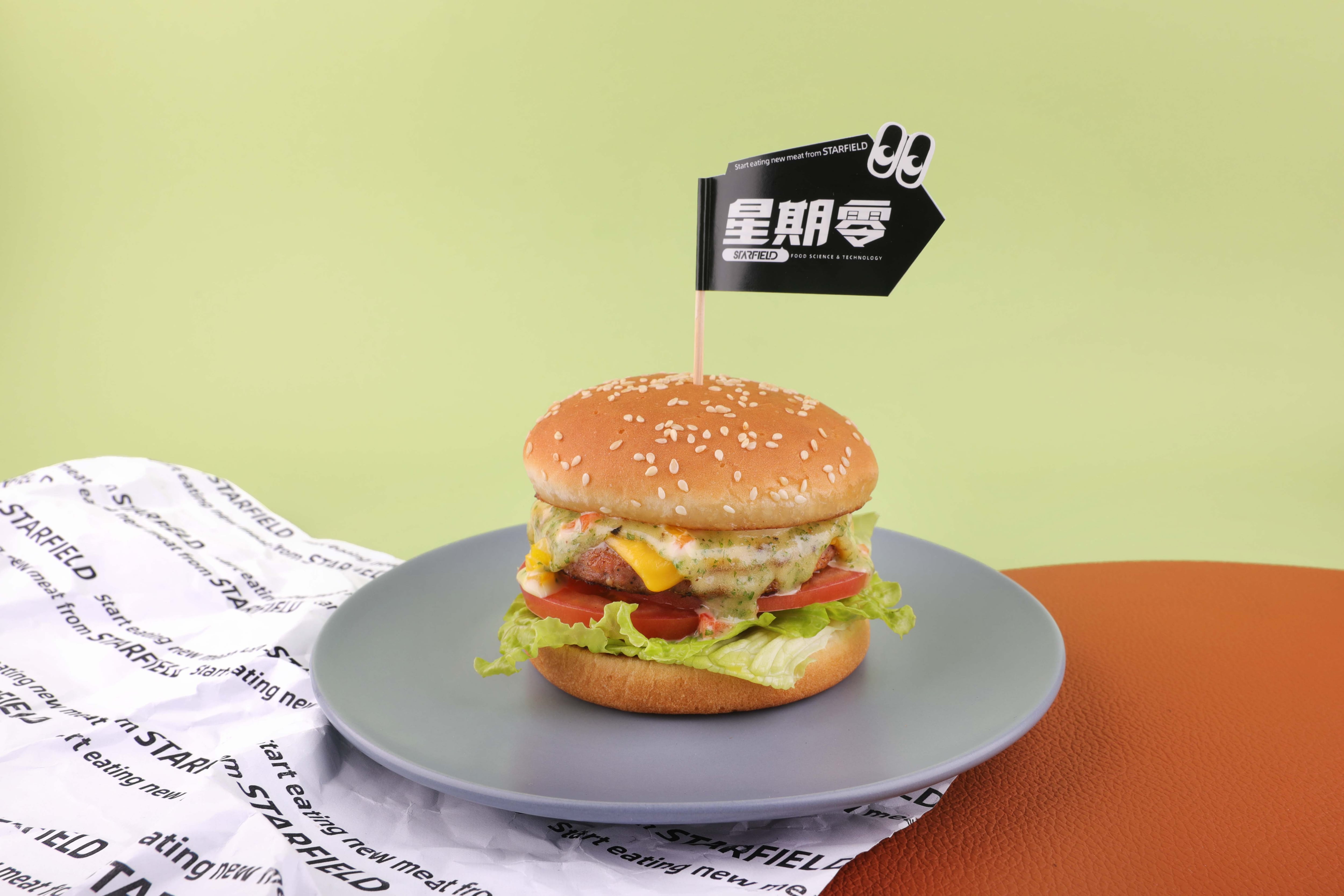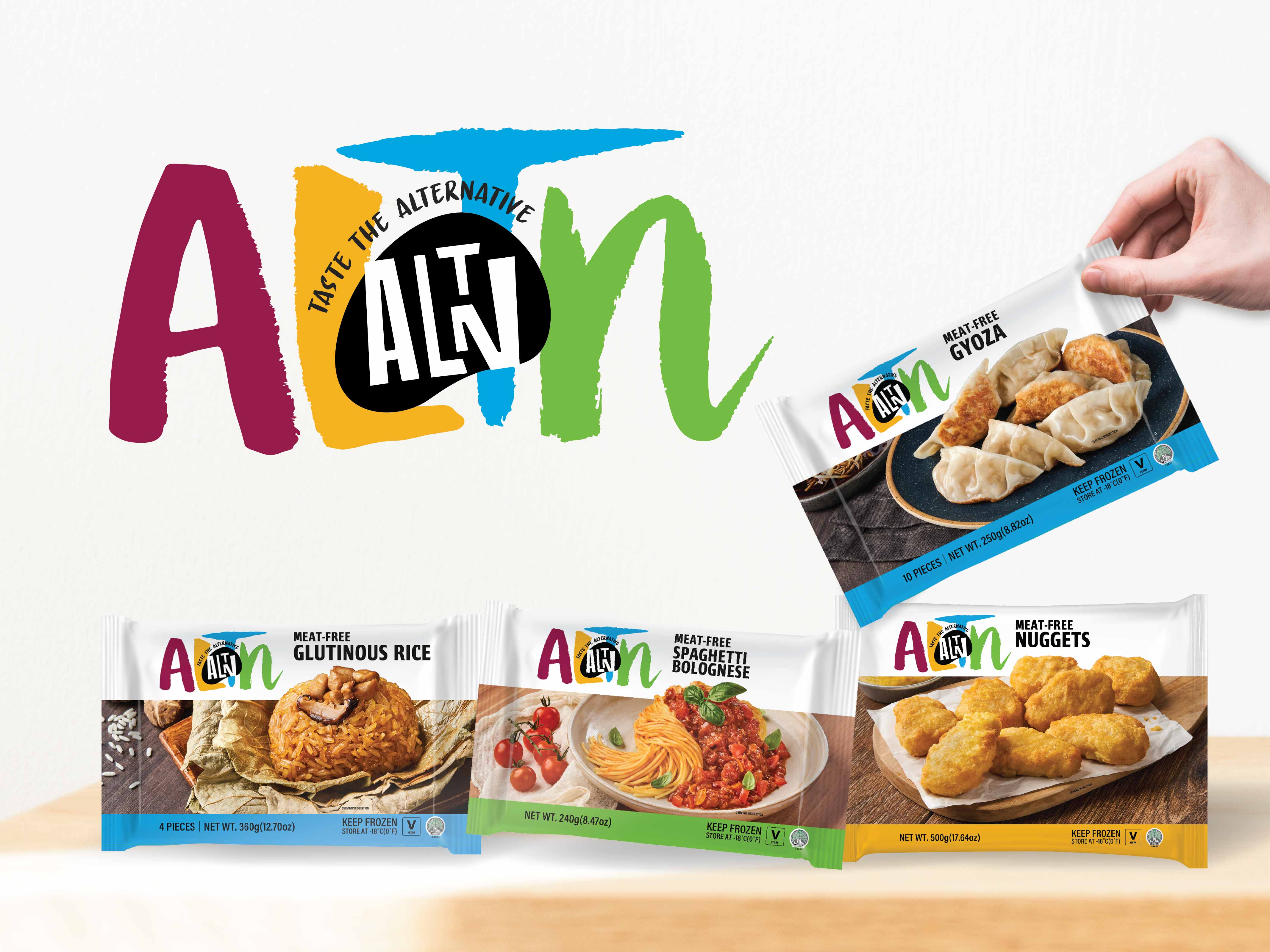Its plant-based products are available in more than 5,500 outlets nationwide, including Dicos (Chinese fastfood chain), Tim Horton (Canadian fas food chain), FamilyMart (plant-based meat bento), and Nayuki (Chinese tea retail brand)
This year, Starfield hopes to launch a frozen product via the e-commerce channel. Starfield has around 10 fixed SKUs of plant-based chicken, pork and beef, which it supplies to small-scale restaurants. For larger food chains, it customises products accordingly.
According to Starfield’s co-founder and chief culture officer, Liu Shuman, the company started entering food service as a means to introduce products to the masses and build Starfield’s awareness.
In particular, Liu said, Dicos played a key role in serving Starfield’s plant-based products to not only people in the first tier cities, but also second and third tier cities, where the fast food chain is mostly located. Dicos has 2,600 stores across China.
However, Starfield acknowledged that it lacked direct contact with end consumers.
“We really want to promote and advocate a plant-based lifestyle directly to the consumers, so for that, we have to do retail products,” Liu told FoodNavigator-Asia.
“But we also understand that it takes time for consumers to get used to products in retail, and for them to actually start using them in their daily lives.”
For a start, Starfield will enter via e-commerce first. “E-commerce channels are a great way to launch new products in China. If the product performs well, we can consider expanding into supermarkets and convenience stores after.”
Starfield is currently finalising several major e-commerce partners to launch its retail product. Details about the product were not disclosed.
This year, Starfield is also hoping to collaborate with more food service players in China.
Time will tell
When Starfield started out two years ago, it was the first plant-based meat brand in China that was readily accessible to the public.
Back then, Liu said plant-based diets were not mainstream, and consumers were still largely unaware of plant-based meat products, technology and the health and environmental benefits.
Fast forward to 2021, Liu is pleased that consumers are slowly gaining more awareness about plant-based meat, which is supported by the entry of international players like Impossible and Beyond.
Technology
Liu co-founded the company in 2019 together with two other co-founders with similar ambitions of advocating a plant-based lifestyle in China.
Starfield products are mainly derived from soy protein and wheat.
The technology used to produce Starfield’s products stems from molecular sensory science.
Liu explained that other plant-based manufacturers typically used strong flavourings to achieve the meaty taste of their products.
“But the problem with this is that the flavour is really strong, and pre-determined by the flavourings you're using.”
“This may be great in the US market, but it may not be as suitable in the Chinese market.”
In addition, China is a country with different regional taste preferences.
“If you use artificial flavour in your product, it may not match with the local flavour preferences, or their way of cooking or the local sauces.”
Starfield’s technology imitates a chemical reaction - Maillard.
“In our formula, we have certain amino acids and sugars. When they are heated, they undergo the Maillard reaction which releases the meaty flavour.”
According to Liu, its raw plant-based meats will not smell of artificial flavours or meaty notes, which can only be achieved after cooking.
This way, the product can be paired with regional cuisines and flavours, better catering to the Chinese palate.
This is also similar to how Singapore’s Shandi Global makes its plant-based chicken products.
Starfield is also working on the low moisture protein extrusion technology, to achieve the desired texture, a challenge faced by many plant-based companies.
“Low moisture protein extrusion creates a texture similar to ground meat, instead of the whole muscle texture which is obtained through high moisture extrusion technology,” Liu said.
“It's hard to get the flavour right with high moisture protein extrusion because the flavour cannot penetrate inside the tissue.”
The company sources its ingredients from China, with manufacturing located in Jiangsu Province. It has three R&D sites in Shenzhen, Shanghai and Beijing.
Starfield has raised more than RMB 100 million in angel investments and Series A round. The funds will be used to invest in R&D, as well as build another manufacturing factory.
Liu told us it was currently working on a plant-based seafood product.
Starfield is also hoping to enter Hong Kong by summer 2021.




